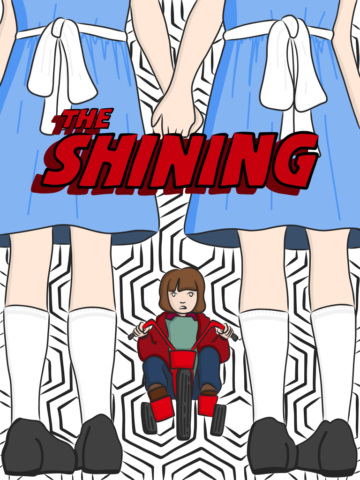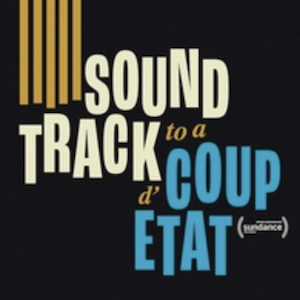Be Still, My Tell Tale Heart
By Catheryne Kelly
When was the last time you felt truly frightened? Recall that fleeting state of paralysis; your hair standing up on end, your breath quickening and the feeling of your heart beating out of your chest. Such sensations of fear are the very materials used by Steven Berkoff to paint the masterpiece that is Tell Tale Heart. Renowned for the sheer intensity of his craft both on stage and on screen, Steven Berkoff; actor, playwright and director, plunges into the macabre for his film adaptation of Edgar Allan Poe’s Tell Tale Heart. Think you have a morbid curiosity? In Be Still, My Tell Tale Heart, we explore this provocative and unsettling film; it will satiate any thirst you may have for the grotesque.
The short story, first published in 1843, is told through the lips of an unnamed narrator who is intent on proving his sanity to the reader through recounting his murder of a harmless old man. The narrator is seemingly motiveless, yet expresses his wish to kill the old man on account of his unsettling “vulture eye”. The narrator calmly tells us of how he meticulously calculated and executed the murder. He dissects the old man’s body into pieces and hides it below the floorboards. When a trio of policemen arrive at his door to inquire about suspected foul play, the narrator’s guilt and heightened imagination manifests itself into the hallucination that the murdered man’s heart is still beating below them. His appeal to convince us of his rationality is ultimately self-destructive. This film is not for the faint-hearted.

Berkoff is well accustomed to playing and portraying famous literary characters. One of his earliest plays was an adaptation of Franz Kafka’s, The Metamorphosis. Alone he undertook the iconic roles of Iago, Macbeth, Shylock and Richard III in a play titled Shakespeare’s Villains. Berkoff has also directed an interpretation of Salomé by Oscar Wilde.
This is not the first time that Berkoff has worked with the complex Tell Tale Heart. Alongside a piece called Dog, written by himself, Berkoff performed the short story as a monologue in his revival of a previously performed one-man show at the Hammersmith Riverside Studios, titled One Man. He then brought Tell Tale Heart to the screen in an adaptation televised in 1991 as part of the acclaimed series, Without Walls. Now, Berkoff appears not only as the protagonist in this feature-length film version; he can also be accredited with adapting it alongside director Stephen Cookson.
Berkoff peppers his film with intimate theatrical experiences. He commands the screen as he would a West-End stage, bringing all the tension and spectacle of the theatre to the fore. Distance from his audience is by no means a disadvantage to this virtuoso; while it lulls viewers into a false sense of security, Berkoff’s performance is challenging and invasive. We’re invited into a claustrophobic setting and exposed to inescapable gothic, psychological horror. Berkoff shares with us a brutally honest understanding of the human psyche as he sees it; in its equal capability for both creativity and destruction. Berkoff’s acting style has long been described as ‘in-yer-face’; his performance in this film is no exception.

Poe’s text is cocooned inside a spine-chilling soundscape by David Lord and Tim Wheater, which varies from wistful melodies to surrealist staccato sounds. Such a strange and engrossing mix creates a communion between actor and audience in what the famous French theatrical theorist, Antonin Artaud called a ‘magic exorcism’ which forms “a language, superior to words, that can be used to subvert thought and logic and to shock the spectator into seeing the baseness of this world.”
Artaud’s presence in Berkoff’s film can also be felt in the extreme depictions of violence throughout. Visceral violence was central to Artaud’s Théâtre de la Cruauté (Theatre of Cruelty) and was used to assault the senses of the spectator. Similarly, in Tell Tale Heart, we are subjected to the cutting of human flesh and the sound of dripping blood in manic snapshots that fracture some of Berkoff’s most intense scenes. In which, his character wrestles with ideas of subjectivity and truth. Visual violence seeps into the heart of the film; its athletic manipulation, along with Berkoff’s explosive emotions dictate the tempo and captivate us until the very end.

In their adaptation of Tell Tale Heart, Berkoff and Cookson have created their own ‘Theatre of Cruelty’, fit for the big screen and a contemporary audience. It provides a bracing shock to the system that invites us to contemplate the inexplicable aspects of our own psychology. It is masterpiece of the abstract and obscene.
If you enjoyed Be Still, My Tell Tale Heart, why not read The Art of Slighting which explores cut-throat within literature and drama.





